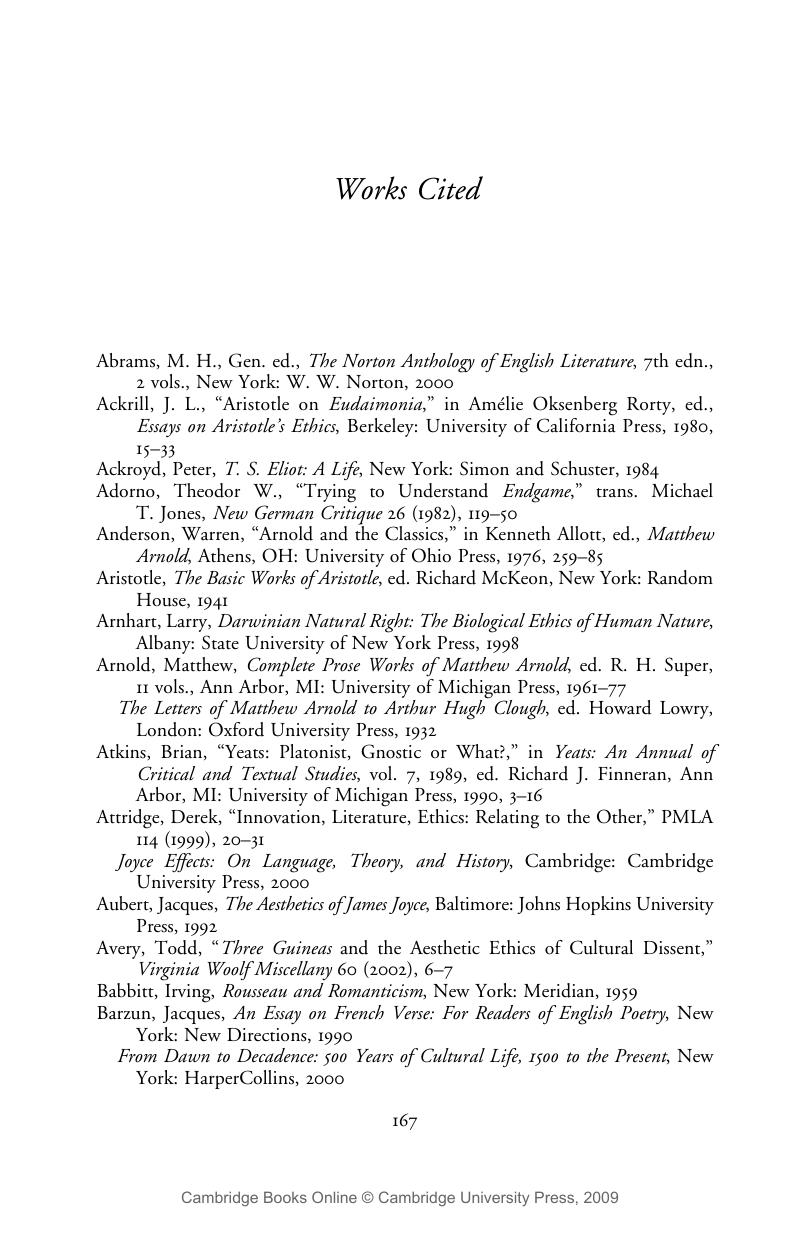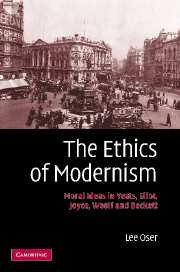Book contents
- Frontmatter
- Contents
- Acknowledgments
- Introduction: literature and human nature
- 1 W. B. Yeats: out of nature
- 2 T. S. Eliot: the modernist Aristotle
- 3 James Joyce: love among the skeptics
- 4 Virginia Woolf: Antigone triumphant
- 5 Samuel Beckett: humanity in ruins
- Conclusion: technology and technique
- Notes
- Works Cited
- Index
- References
Works Cited
Published online by Cambridge University Press: 22 September 2009
- Frontmatter
- Contents
- Acknowledgments
- Introduction: literature and human nature
- 1 W. B. Yeats: out of nature
- 2 T. S. Eliot: the modernist Aristotle
- 3 James Joyce: love among the skeptics
- 4 Virginia Woolf: Antigone triumphant
- 5 Samuel Beckett: humanity in ruins
- Conclusion: technology and technique
- Notes
- Works Cited
- Index
- References
Summary

- Type
- Chapter
- Information
- The Ethics of ModernismMoral Ideas in Yeats, Eliot, Joyce, Woolf and Beckett, pp. 167 - 179Publisher: Cambridge University PressPrint publication year: 2007



